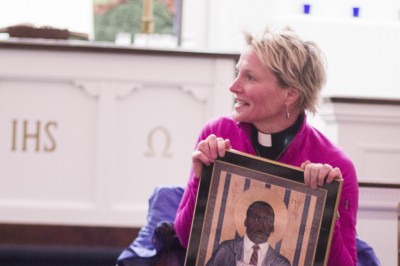
One of the reasons her research was featured by the Institute for HeartMath was that Quehl-Engel had participants use an adaptation of HeartMath’s Heart-Focused Breathing™ Technique as part of their homework. In the end, 96 percent of participants reported using the program weekly during the six-week program, and 93 percent still occasionally after the program ended. The institute's summary is available online, as is Quehl-Engel's dissertation.This thesis project involves the creation and assessment of a heart-focused interior prayer/compassion meditation program for an inter-spiritual, liberal arts college ministry context. The Deep Abiding project was not only intended for participants’ personal solace, healing, and empowerment. Reflecting Cornell College’s mission and core values concerning civic engagement, social responsibility, and moral courage, this program also sought the original purpose of many Western and Eastern contemplative traditions: namely, to live, love, lead, and serve as instruments of healing peace, and to awaken awareness of our inter-connective oneness. Sound quantitative and qualitative assessment instruments were used to measure whether heart-focused formal and informal practice of "tuning in" and identifying with indwelling life force energy or Spirit as one’s Deepest, Truest Self contributed to participants’ personal and communal healing. Also measured was the implied assumption that this practice would increase awareness of inter-connective oneness, compassion, mutuality, and solidarity with others.